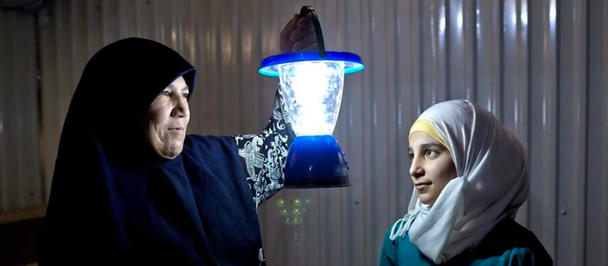Settled minds, settled lives: A conversation with Zhanna Chmut on #InnerPeacebuilding in Ukraine
The collective mental health of communities
October 7, 2022
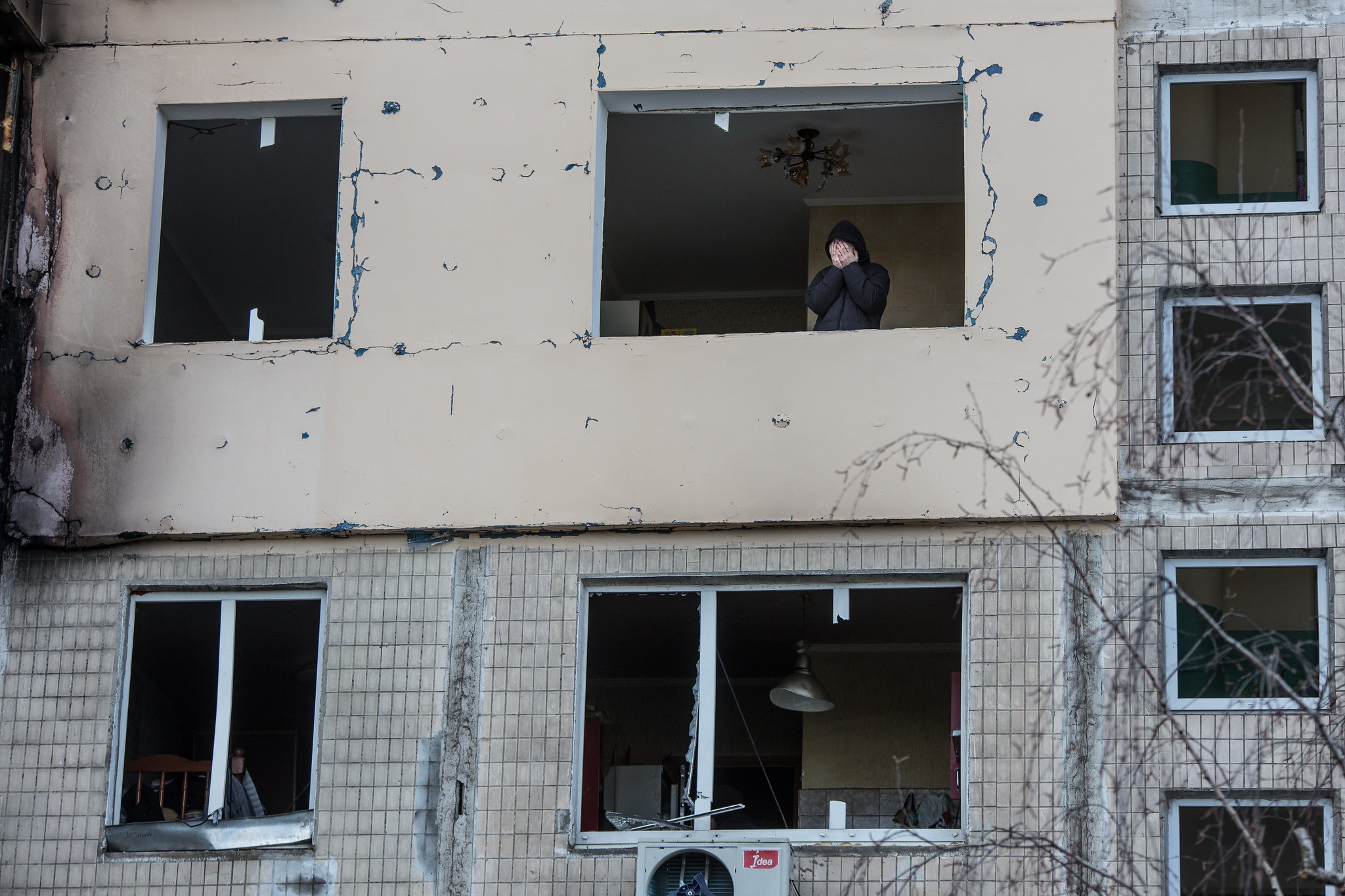
Shelling partially destroyed a block of flats in Obolon District, Kyiv, Ukraine, 14 March 2022. UNDP is integrating mental health and psychosocial support into all its peacebuilding activities in the country.
With one in eight people around the world suffering from mental health issues, providing mental health and psychosocial support (MHPSS) is more necessary than ever. This story is the first in a multi-episode series “Settled Minds, Settled Lives: Building resilience through #InnerPeacebuilding”, which delves deep into the relationship between MHPSS and peacebuilding, advocating for the need to integrate these two fields, while unpacking new approaches to building resilience against widespread mental distress.
In this first episode, Nika Saeedi, UNDP global focal point on MHPSS in peacebuilding, spoke with Zhanna Chmut, Civil Society Engagement and Capacity Development Specialist at UNDP Ukraine.
Can you recall the moment when you realized that providing mental health and psychosocial support (MHPSS) were essential to the work the UN is doing?
Zhanna Chmut: The right to mental health is a basic human right. As someone who has worked on strengthening community social cohesion in Ukraine since even before the war started, I often observed that a key contributor to development was the community’s ability to resolve internal conflicts in a non-violent manner. For this reason, non-violent communication is the first step toward personal and community mental health. Why? I believe that communities have collective "mental health".
A community is a complex puzzle of individuals and relationships. In Ukraine, since the armed conflict flared up in 2014, communities outside the conflict zones have had to accommodate hundreds of thousands of internally displaced persons, who, aside from their knowledge and skills, also brought their trauma and struggles. Starting their lives over in a new place inevitably affected their mental health – which had ripple effects on the host communities.
The situation worsened after the Russian invasion on 24 February 2022. There was a sense that all of Ukraine was on the frontline – some were fighting, others were volunteering to help those in need. Many of our partners, including emergency services, police, NGOs and local authorities suffered from emotional burnout along with physical exhaustion.
This, in short, is why every new activity and project that UNDP introduces and implements (for peacebuilding in Ukraine) now has a MHPSS component – such as psychoeducation, MHPSS hotlines, information campaigns, digital tools and art therapy. Our intention is to restore the mental health of our partners as well as the communities we serve. Our efforts would not have been successful without MHPSS.
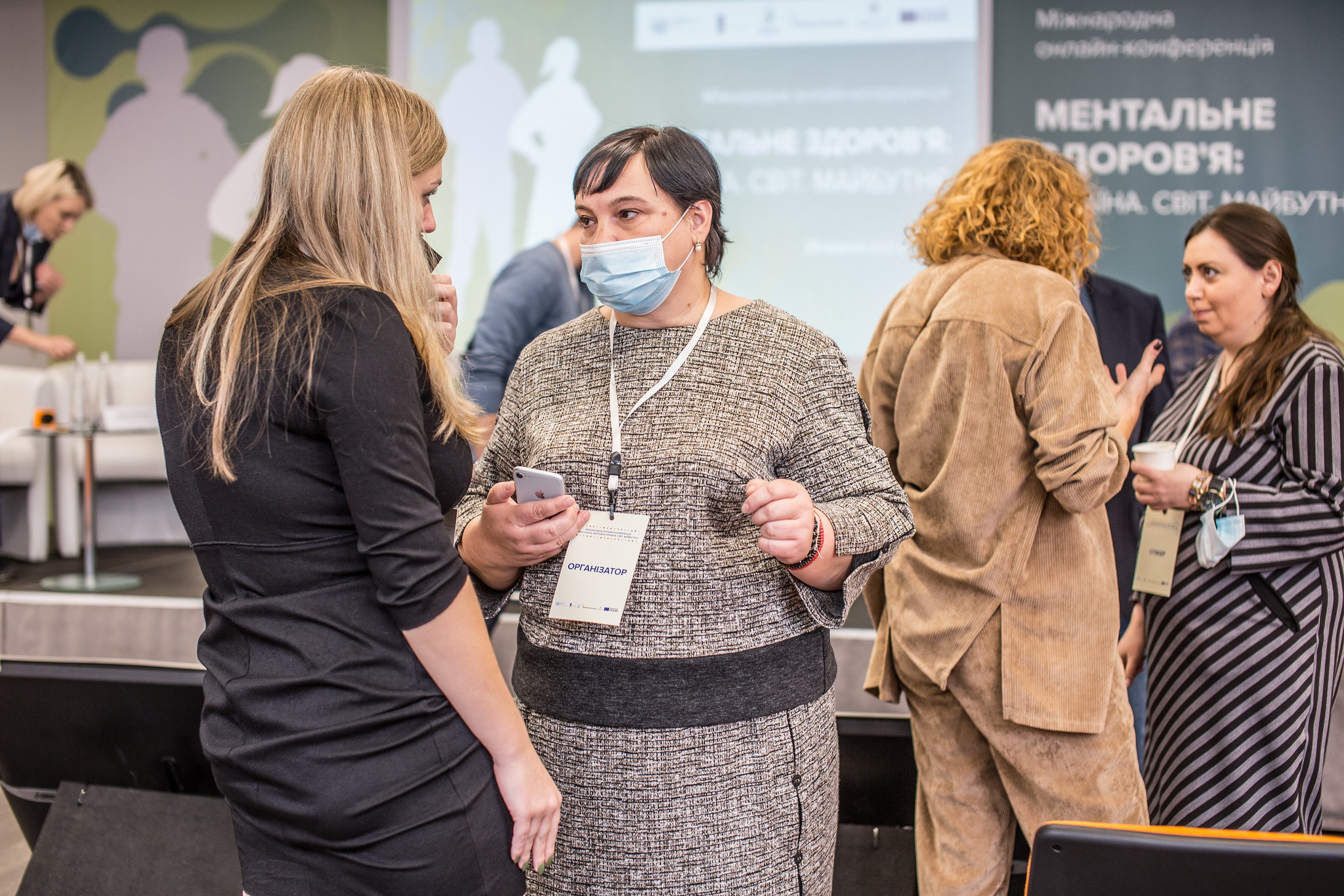
Zhanna attends the “Mental Health: Ukraine. The World. The Future” international conference organized by UNDP Ukraine.
Why do you feel MHPSS should be integrated into peacebuilding?
Zhanna Chmut: The need for mental health and well-being is becoming more acute in a global context of heightened polarization. Amid compounded humanitarian and security challenges, communities are facing a rising mental health crisis, with a 30 percent increase of reported cases over a decade ago.
Unfortunately, those who seek help from mental health professionals are still affected by myths and stigma, sometimes even coming from family and friends. Before the war, MHPSS providers fought these myths on a case-by-case basis.
Today, all Ukrainians could benefit from MHPSS to varying degrees. Regardless, recovery efforts will need to be centred around the needs of war-affected population, healing the invisible wounds left by hostilities. In fact, they have already started to do so.
Left unchecked, mental health problems can lead to violence or disengagement, which inevitably obstructs efforts at peacebuilding. Therefore, it is essential to integrate МНРЅЅ into peacebuilding programmes in Ukraine and to ensure that this process becomes a key priority for the Government. I am convinced that a “healthy person is a healthy state!”
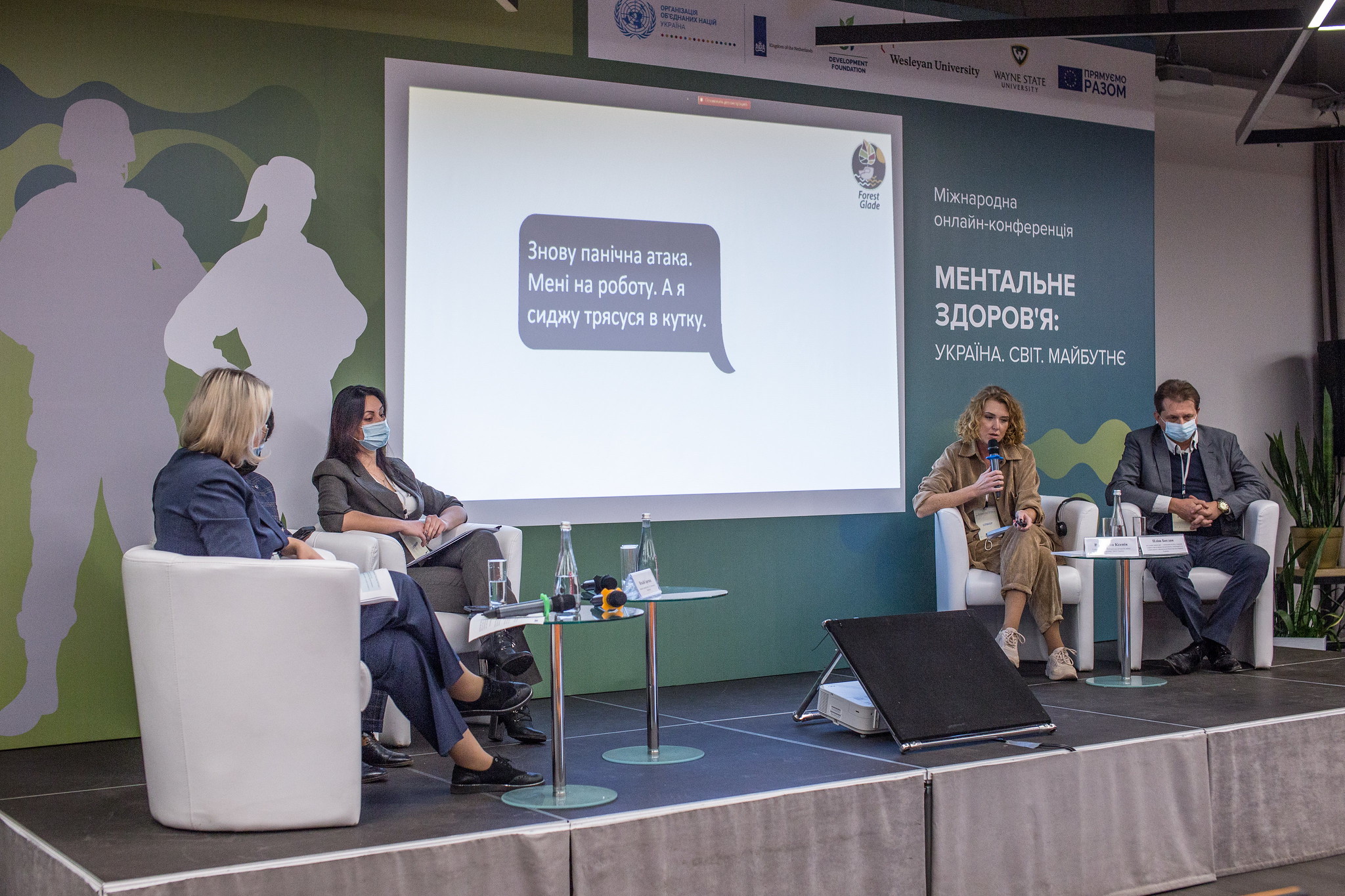
UNDP Ukraine organized the “Mental Health: Ukraine. The World. The Future” international conference on the urgency in providing qualified psychological assistance to ex-combatants and non-combatants affected by armed conflict.
How exactly can MHPSS be integrated into peacebuilding? Can you give examples of your work in the field?
Zhanna Chmut: Integrating MHPSS into peacebuilding must take place simultaneously at local, regional and national levels, and the processes should be interlinked and complementary. In this regard, UNDP recently published a Guidance Note on Integrating MHPSS in Peacebuilding, which identifies, for the first time, a structured approach to integrating MHPSS in peacebuilding. The intention is to empower local actors to introduce and implement MHPSS policies and practices, especially in times of crisis and conflict.
For example, UNDP Ukraine is providing expert support to develop a national medical and psychological rehabilitation policy for ex-combatants, who make up one of the largest vulnerable groups in Ukraine. Their needs are substantial and must be accompanied by a national mental health policy that includes special provisions for all vulnerable groups.
At the regional level, UNDP launched psychological first-aid hotlines to provide citizens with counselling through audio or video link. This initiative has been very successful owing to large-scale information campaigns and in-person MHPSS. Whenever possible, support is provided in places where displaced persons congregate. We must remain mindful of the need to overcome stigma!
At the local level, however, accessing primary MHPSS remains a struggle. In many remote villages, there are no specialized psychologists. There, UNDP focuses on engaging school counsellors and building their capacities to work with displaced persons and other vulnerable groups. After receiving training and being equipped with a package of psychoeducational material, school psychologists can become providers of primary MHPSS.
What role can UNDP play in encouraging or facilitating the further integration of MHPSS into peacebuilding?
Zhanna Chmut: Since 2016, UNDP has been the lead organization behind one of the largest peacebuilding programmes in the country – the UN Recovery and Peacebuilding Programme. This is why we are extremely well-placed to facilitate the integration of MHPSS into peacebuilding in Ukraine. To achieve this, we have fostered partnerships with key ministries and launched advocacy initiatives that influence national-level policy, while also supporting area-based development. We also have supported networks of civil society organizations, including those working in and advocating for MHPSS, as valuable partners that generate real changes in people’s lives. Lastly, we have helped to establish joint systems for conflict analysis and mediation in the same communities where we are actively championing the importance of mental health and tackling the stigmas surrounding it.
As the key Sustainable Development Goals integrator, UNDP works with vulnerable groups, encouraging youths to actively explore how they can contribute to the recovery of the country, while ensuring the elderly are not left behind.
The war is pushing us to deliberately link these two elements more, advancing MHPSS as a precondition for community-level conflict mediation. The comprehensive work that the UNDP-led Recovery and Peacebuilding Programme has been carrying out for eight years is our basis for strengthening community-led efforts to rebuild: our aim is to ensure that civil society actors are seen as trusted partners in helping the state provide primary MHPSS.
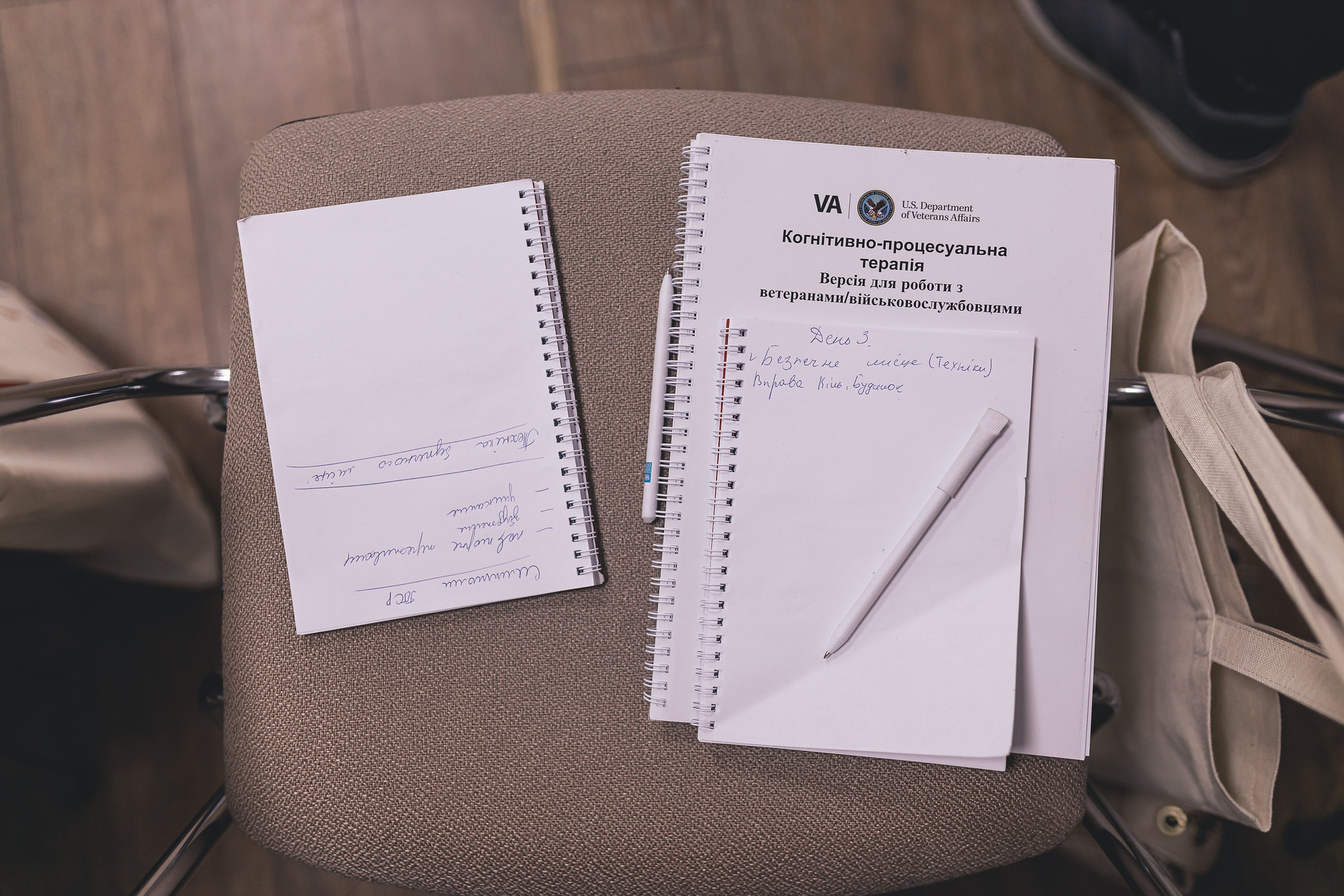
UNDP partnered with the NGO “Communities of Self-Help,” the Wayne State University School of Social Work (USA), and the company “Clairpointe Family Therapy” (USA), with the financial support of the Government of Canada, to organize trainings on cognitive processing therapy for school psychologists.
Lastly, how can aid interventions mitigate collective trauma and foster community resilience, creating a sustainable path to lasting peace?
Zhanna Chmut: Many international organizations are working on MHPSS in Ukraine, and although their goals are similar, each may rely on different protocols and strategies. To make sure our work is effective and long-lasting, we need to seek synergies and common standards, and adopt strategies that improve local capacities and systems, rather than duplicating efforts. I believe there are three important things that could contribute to the sustainability of peacebuilding in communities:
- The development of MHPSS strategies at the subnational, even local level – that feed into an overarching national-level programme. These must include initiatives that strengthen the social fabric, improve social cohesion and facilitate the integration of new populations into host communities.
- Making MHPSS services more widely accessible, for example using online digital tools like telehealth and teleconsultations, thus ensuring comprehensive and widespread coverage of mental health needs across the country.
- Normalizing mental wellbeing, by addressing stigmas from a young age and encouraging inclusivity. UNDP Ukraine has piloted school-based activities that build young champions for conflict mediation. I believe the same model could be used to create adult mental health champions.

 Locations
Locations



